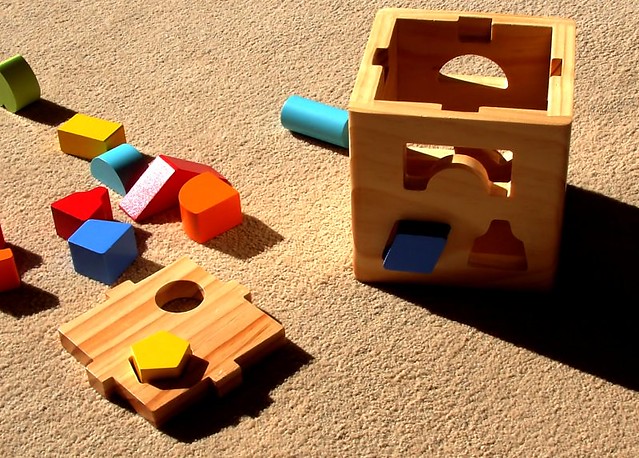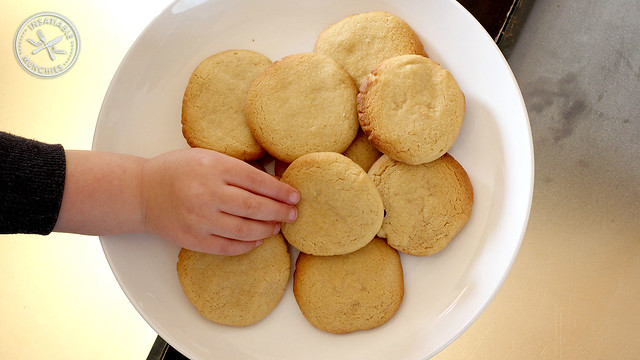|
One of the most common issues parents of kids aged 0-5 ask me about is sleep. Kids under five have a lot going on, so it often translates into their sleep cycles. If your baby, toddler, or preschooler takes forever to fall asleep, tosses and turns, has nightmares, or gets up in the middle of the night, you need to keep reading.
Do Relaxing Yoga Two Hours Before Bedtime Timing is important to ensuring this works to your child’s benefit. Night time exercise should be low impact and be no closer than an hour or two before bedtime. I’ve found doing a 10 or 20 minute yoga routine two hours before bedtime is what works for my own baby, toddler, and preschooler. The poses chosen should be ones that don’t require high energy, as those will instead keep them awake. So here, you want to choose simple relaxing stretches, like half-sun salutation, child’s pose, legs up the wall, downward facing dog, puppy pose, cross-legged forward fold, and savasana. We like to end with savasana and spend a little extra time here, since it is relaxing. Meditate To Yoga Singing Bowls And Binaural Beats This is the step where my kids always go to sleep fast. Yoga singing bowls and binaural beats have a way of speaking to the brain for various purposes. We like to use Spotify to create our playlists so that we can play the music in whatever order we need. We choose binaural beats that are covered with yoga singing bowls, thunderstorms, and other healing music. These can be chosen for very specific purposes, such as anxiety and sleep. I choose which ones to play for the kids based on what they need that night. If there isn’t a specific need, I choose general sleep and healing beats. Then, the kids get settled and lay down to meditate. Some children may need a thought to focus on for meditation. They may fall asleep during meditation. That’s normal and okay. It’s actually what you want. Babies and younger kids may not participate in meditation in the same way as kids who can understand the concept, but playing the music will relax them into natural meditation and eventually sleep. Keep The Music Going As They Sleep I keep our healing playlists going as the kids sleep and it helps keep them asleep longer and helps with healthy, refreshing sleep. Once the meditation part is over, sometimes I switch to beats with other purposes that they may need focus on. I’ve found that if the music is played throughout the time period they need to sleep, most nights they will stay asleep the entire time. My kids who used to have nightmares started having them less often and so far, now have had none as long as we do this bedtime routine. If you have kids in the baby, toddler, or preschooler age range, you might want to try this simple nightly routine for better sleep. Sleep is necessary for proper focus, reducing stress and anxiety, and better overall mental and physical health. Have you tried our technique? Have other tips or commentary? Drop us a comment below!
0 Comments
10 Toys for a Baby or Toddler that Have High Safety Standards
Finding safe toys for babies and toddlers has gotten harder, with so many recalls happening. However, there are still many toys that are safe for children as birthday and Christmas gifts or for everyday use. Here are 10 toys for babies and toddlers that have been tested for safety. The toys listed below come from companies who have stated that all of their toys meet or exceed the requirements for toy safety, so with that statement in mind, feel free to browse other toys made by the same companies.
*As with any toy, these toys do not replace the need for parental supervision. Accidents can happen, even with the best safety ratings. Always use caution and always supervise your baby or toddler.
**The author is a part of the Amazon Associates Program. This means she earns a small portion of sales generated from clicking on the links in this post and uses it to provide for her family. Said partnership did not influence the opinions on these products. See our full Disclosure Policy for more information.
"Julie! I told you to pick up those toys an hour ago. Why are they still there?" If you have young kids and this sounds familiar, all you need is a bit of routine and a dose of fun. As a long-time parent, I know full well that not all kids enjoy cleaning. Some see cleaning as a source of enjoyment. But if that's not your child, you are not alone. When young kids won't clean, it may be time for a new plan. Here are some of the things I have found effective over the years.
Make a chore chart. This helps with organization and also serves as a good reminder and source of motivation. For young kids who can't read, use pictures to depict each chore, rather than words. This way, your child can translate the chart without assistance. Young kids often thrive on independence. At least, that's how all of my kids were when they were small. Therefore, a chore chart they can use without the help of a parent may yield the best results. It also sets the pattern for kids to become responsible for their own actions. Offer incentive. It's not fair to expect the kids to complete tasks without some kind of incentive. While teaching kids to do some things without being compensated is good, when it comes to chores, I prefer to reward my kids when possible. I leave learning about being unselfish to things like helping others without being asked. We have an elaborate chore chart system that also combines allowance earnings. You may choose to develop another system. Good incentive for young kids could be anything from money to special healthy treats, stickers, and more. Make it fun. Young kids may not always enjoy cleaning. But they may not think of it as a chore if you make it something fun. We like to dance while cleaning or have cleanup and put away races. Making games out of cleaning up can reduce the grueling effect cleaning up may have on some kids. There's no reason not to make it an enjoyable experience for them and it may set a life pattern of seeing the fun in everything. Get organized. Sometimes young kids don't clean up because there is no exact place for each item. If there's nowhere obvious to store their items, young kids will be happy with them being on the floor. After all, they can see all their toys that way. Devising an organizational plan that still allows the kids to easily see and grab their items has always helped in our family. Don't stress. It's easy to panic when your child has thrown everything she owns onto the floor and refuses to pick it up. But as the parent, you should be the calm voice of reason and understanding. Remember that while it can be frustrating, it can be turned around with a little effort. At the end of the day, it is just a mess and not the end of the world. It will get cleaned up when you instruct your child on cleaning and instill some sort of routine. Be consistent. This is the most important part of any routine you decide to go with. As long as you stick to what is relayed to your child, it will get done. My kids have always been better at cleaning when I make sure they clearly follow my instructions and the routine I lay out. You can't tell them something one day and ignore it or say something else the next. Otherwise, all that happens is they get confused and the room doesn't get clean. More from Lyn: Why is My Child's Room so Messy? Can a House with Kids Be Too Clean? 5 Must-Have Items for Organizing a Kid’s Bedroom Positive Parenting: Tame the Toddler Pouty Lip Tired of that pouty toddler lip sticking out everywhere you go? Toddlers may use the moody, pouty lip to indicate frustration, sadness, and even to get attention. Why is your toddler pouting and how can you tame the toddler pout? I've had many years of first-hand nanny and parenting experience. Because of that, I can honestly tell you the simplest tips are the ones that usually work best. These methods have been tested by me time and time again and proven effective for taming the pouty face on many different toddlers.
Why the pouty face? Getting to the bottom of things should help with a resolution. Figure out why your child is pouting. Did someone take your toddler's favorite toy? Did daddy just leave for work? Use that information to come up with a quick action plan for getting that pouty lip back in its place. It may be as simple as giving back the toy someone took away. But again, it may not. If a toddler's daddy just left for work, you can't reverse that. So you'll need another plan. Sometimes, no matter the reason, a quick solution is best for your toddler's sake and yours. Who doesn't get a pouty face themselves when seeing a sad kid? Laugh it off! This is my absolute favorite method for banishing the pouty lip? Why? Because it's fun for the child, as well as the parent. The next time your toddler sticks out that pouty lip, go for humor. Do something completely funny and completely unrelated and break out into laughter. Turn that pout into a big smile. If you can make your toddler giggle instead of pouting, that's even better. You know your child best, so pull out your funniest tricks. Use props if necessary. Anything that makes your toddler happy is good. I can pout like that, too! Yet another fun method, this gets your toddler thinking about things from another perspective. Get down on your toddler's level and stick out your pouty lip, too. See how long that pouty lip stays in place. The art of mimicking is often enough to get a toddler to understand how silly the pouty lip may be. Now, this method is more for toddlers who are overusing the pouty lip to get attention. You don't want to mock a child who is hurt or upset. That may come across as uncaring. Distraction is a beautiful thing. If the pouty face blues are persistent, try distraction. Use your toddler's favorite activities or items to draw attention away from the upsetting moment. Start playing with a favorite toy or reading a favorite book. It's interesting to see how quickly a toddler can become interested in a new activity. Your toddler may still pout at the beginning of an activity, but once engagement in the activity happens, the pouty lip will be no more. It may be tricky keep a toddler interested at first, but if you make it fun, that pouting face will eventually disappear. Hug that pouty lip goodbye! Sometimes all a pouty-lipped toddler needs is a simple hug. Good old comfort never hurt anyone. In fact, perhaps this was all that was needed all along. Your toddler may just be using the only way he knows to get attention. Even toddlers who are talking may still have some lingering baby habits. Remember that as a baby, your toddler had to be creative in getting your attention. That may still hold true in certain cases. Sometimes the best forms of communication are motions and sound effects. The pouty lip may just mean your toddler needs some extra love. *Note: The author's "Positive Parenting" method has grown and evolved into what she dubs "Upstream Parenting." *I originally published a version of this via Yahoo Contributor Network Positive Parenting Tips to Keep Small Children from Sneaking Food
"No, James! I told you to ask first," repeats a frustrated mom for what seems like the hundredth time that day. If this sounds like your house, you may want to try some positive parenting techniques to keep your little one from sneaking food. Many parents have been down this road before with at least one child. As a veteran mom with kids of varying ages, I've had plenty of experience in this area. The first part of solving the issue lies in discovering the root of the sneakiness. Some kids may have an eating disorder, so it's also important to talk to the pediatrician first. These extra positive parenting tips that worked for us may help as well, if approved by the child's doctor.
Is your child getting enough food and nutrition? As children grow, they tend to eat more than they usually would, especially if they are going through a growth spurt. Some kids will even eat more than some adults. Look for signs that tell you to adjust your child's portion size at meals. If your child tries to go back for seconds and thirds or tries to have snacks immediately after dinner, you may not be providing enough to begin with. Also, pay attention to what food he sneaks and report this to the doctor, in case there is a nutritional deficiency. There may be certain vitamins and minerals lacking from the diet that your child is trying to compensate for. Are there enough snacks in between meals? If your child is trying to hoard or steal food, that may simply be a signal that he needs snacks. Keep a schedule of the times your child most often tries to steal food. If it occurs at similar times, schedule a snack at that time. If it's random, your child's feeding schedule may be inconsistent. Try to feed your child his meals and snacks at the same time every day so that his body can better form a hunger pattern. The actual time does not matter as much as it matters that the schedule stays the same. Watch for hunger cues. If you learn how your child behaves when hungry, you can intercept before he tries to sneak food. Being proactive like this is a more positive parenting method than being reactive. If you catch your child before he even thinks of doing the act, this can lessen instances without having to reprimand. If the sneaking has become a bad habit, this method may be tiring at first, but it will be worth it to see your child's sneaky food behaviors improve. Should you lock the cupboards and refrigerator? While this can be an easier temporary solution for frustrated parents, it can only make some children want the food more. It also can make a hoarding problem worse because they will want to hide food for later if they know they cannot access it easily. As small children get older, they will be more curious about how to remove the locking mechanisms. A more positive parenting method is to teach them to ask for the food, rather than take it. This way, when they are old enough to figure out locks, they are mature enough to understand why they shouldn't just steal food all the time. Never refuse food, unless it's absolutely necessary. Most children will know when they are full and will not be asking for food. Unless your child has obviously had enough, never say no when he asks for food. Also, if he sneaks food, ask something like "Why didn't you just ask for that?" If you do this consistently, your child will eventually learn that sneaking food is not necessary. This more positive way of teaching the lesson helps avoid making your child feel bad about food. Never, ever make a child feel bad about food. Also, do not use food as a reward. There needs to be a fair balance for your child to have healthy food behaviors. Using positive parenting methods to revert your child's food focus can be extremely helpful. But just like any other method, consistency is key. Be proactive, not reactive. In time, you will likely see a big improvement in your child's behavior and thoughts toward food. Note: The author's positive parenting method has evolved into what she calls Upstream Parenting. *I originally published this via Yahoo Contributor Network |
Instant Download On Order
Categories
All
Archives
May 2024
|
- Brand Shamans
- Brand Healing
- Inner Healing
-
INTENT-SIVE NATURE
- Content & Brand Elevation
- Healing Jewelry & Talismans
- Bath, Beauty, & Self-Care
- Healing Sessions
- Rituals, Herbs, & Altar Supplies
- Gawwwdess Baby Boutique
- Soul Flame Gifts
- Yoga & Meditation
- Books & Media
- Education & Homeschool Resources
- Home, RV, & Decor
- Clothing
- Pets
- Custom Orders
- Monthly Subscription Boxes
- October Festivals
- FLOW-Key Parenting
- About & Contact
- RV, Nature, & Travel Shamans
- Souls Within
- Life & Home
- Heart 'N Mind Homeschool
- The Homeschooling Mommy
- Books & Authors
- Speak Up!
- Pawsitive Pet Parenting
- Manifesterz
- Gifts In Minutes
- Brand Shamans
- Brand Healing
- Inner Healing
-
INTENT-SIVE NATURE
- Content & Brand Elevation
- Healing Jewelry & Talismans
- Bath, Beauty, & Self-Care
- Healing Sessions
- Rituals, Herbs, & Altar Supplies
- Gawwwdess Baby Boutique
- Soul Flame Gifts
- Yoga & Meditation
- Books & Media
- Education & Homeschool Resources
- Home, RV, & Decor
- Clothing
- Pets
- Custom Orders
- Monthly Subscription Boxes
- October Festivals
- FLOW-Key Parenting
- About & Contact
- RV, Nature, & Travel Shamans
- Souls Within
- Life & Home
- Heart 'N Mind Homeschool
- The Homeschooling Mommy
- Books & Authors
- Speak Up!
- Pawsitive Pet Parenting
- Manifesterz
- Gifts In Minutes






 RSS Feed
RSS Feed





